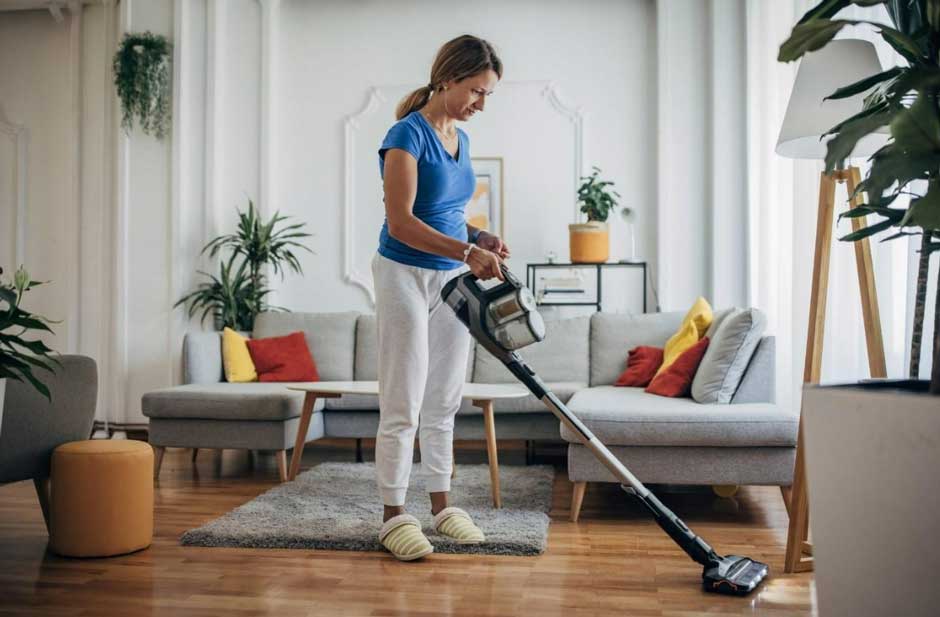Cleaning the House for Guests vs. Cleaning the House for Yourself

There’s a special kind of chaos that takes over when someone announces, “We’re having guests over.” Suddenly, the dust that has peacefully coexisted with you for weeks becomes your number one enemy. But when it’s just you at home, that dust might as well be part of the decor. So why does our approach to cleaning shift so drastically depending on who’s walking through the door?
Let’s dive into the surprisingly emotional, psychological, and practical differences between cleaning your home for guests versus cleaning it for yourself. You’ll see it’s not just about vacuuming, it’s about mindset, priorities, and a little bit of social theatre.
The Guest-Cleaning Panic
We’ve all got the reminder text, “Be there in an hour!” and suddenly your relaxed Saturday becomes a sprint triathlon through your living room, kitchen, and bathroom. Cleaning for guests has urgency. There’s a silent pressure to present your space as if it’s always spotless, smells like a candle store, and has matching hand towels in the bathroom.
You tidy up your space not for comfort or hygiene but for presentation. You’re staging a lifestyle. Couch cushions get fluffed with extra care. You light a candle to set a mood, not to mask the leftover smell of last night’s pizza. The clutter on the dining table is usually relocated to a closet or behind a locked door, where guests dare not peek. It’s a curated illusion of control, cleanliness, and maybe even elegance.
This kind of cleaning is performative, but not in a bad way. It’s about hospitality, making others feel welcome, and showing respect through a tidy environment. But let’s be honest—it’s also about pride. You don’t want your guests thinking you live in a pile of laundry and cat hair. Even if you do.
Cleaning for Yourself

Now let’s talk about what cleaning looks like when it’s just for you.
Cleaning for yourself is a slower, more intentional process. There’s no race against the clock. You might throw on some music or a podcast and actually enjoy the process. There’s no rush to hide evidence of real life. The pile of books on the coffee table becomes a part of it. The dishes in the sink? They’ll get done… eventually. You clean what you feel like cleaning and leave the rest for another day.
This kind of cleaning is rooted in self-care rather than showmanship. It’s about creating a space that works for you, not for an audience. You’re not scrubbing the baseboards unless you’ve suddenly developed a personal vendetta against dust. Instead, you focus on what makes you feel good, like fresh sheets, a clear desk, maybe a floor that doesn’t stick to your socks. It’s functional and forgiving.
Different Standards, Same House
Isn’t it funny how the same home can transform depending on who it’s being cleaned for?
When guests are involved, we become detail-obsessed. We notice smudges on mirrors that we’ve ignored for weeks. We suddenly care about the organisation of our bookshelf, as if someone might judge us for putting fiction next to nonfiction. Our standards rise to levels we rarely hold ourselves to. It’s not that we don’t care about cleanliness the rest of the time. It’s just that the bar shifts.
Cleaning for yourself involves a different set of metrics. It’s less about appearances and more about function and feeling. You don’t dust the windowsills weekly, but you do keep your favourite mug clean and ready. You might skip mopping, but your bathroom always smells fresh. It’s about prioritising what matters to you rather than what might impress someone else.
The Tools and Techniques Shift Too

The approach you take to cleaning also changes based on who it’s for. When preparing for guests, you might break out the fancy tools, be it the good vacuum, the lemon-scented polish, or the decorative hand soap. You might even clean things that haven’t been touched in months, like the top of the fridge or the back corner of the pantry.
But when you’re cleaning for yourself, you’re practical. You reach for your go-to cleaner, the broom you trust, and probably skip any deep scrubbing unless you’re really in the mood. You clean just enough to make your space enjoyable. There’s no performance, just maintenance.
However, sometimes you might miss a few items in a rush, such as a strong detergent that can effectively clean stubborn water smudges on the mirror. At times like these, you can visit mustanghygiene.co.uk to restock your cleaning cabinet and be prepared for any obstacles that might come your way while keeping your home spick and span.
Emotional Undertones: Shame vs. Comfort
Here’s where things get psychological. Cleaning for guests often comes with a side of anxiety. There’s a subtle fear of judgment. That anxiety can push us into overdrive, but it also makes cleaning feel like a task rooted in shame or avoidance.
On the other hand, cleaning for yourself can be like an act of self-care. You’re not hiding your mess; you’re reclaiming your space. You’re saying, “This is mine, and I want to take care of it.” There’s a satisfaction in knowing your space reflects your current state of mind, chaotic or calm, it’s still yours.
Time and Frequency
Isn’t it ironic that the most thorough cleaning often happens the least frequently? You might only deep-clean before the company arrives. Otherwise, it’s a series of small clean-ups, maybe once a week or whenever the dishes pile up.
Guest cleaning is typically concentrated and infrequent. Self-cleaning is more sporadic but also more sustainable. You might do little tasks daily, like making the bed, wiping down the kitchen after dinner, and folding laundry at night. These rituals become a rhythm, part of how you take care of yourself and your space over time.
Finding the Sweet Spot Between the Two

What if you blended the two approaches? Imagine a home that’s always just clean enough for guests, but still feels lived-in and comfortable for you. That might mean adopting a few guest-inspired habits, like wiping down surfaces more often or keeping clutter out of common areas. And it could mean letting go of perfection when guests do arrive and trusting that your friends care more about your company than your spotless floors.
When you combine the intentionality of guest-prep with the kindness of self-care cleaning, you get a space that feels both welcoming and personal. You clean not because you have to, but because you want to. And that mindset shift changes everything.
Conclusion
At the heart of it, cleaning is emotional. It’s tangled up in how we present ourselves, how we feel about our homes, and how we relate to the people in them. Whether you’re scrubbing furiously before guests arrive or casually folding towels on a Sunday morning, you’re engaging in a very human act that shapes your environment to reflect something about you.
So next time you’re vacuuming like your social reputation depends on it or slowly reorganising your bookshelf for your own peace of mind, remember that both versions of cleaning are valid. One is driven by connection, the other by comfort. And your home deserves a bit of both.


